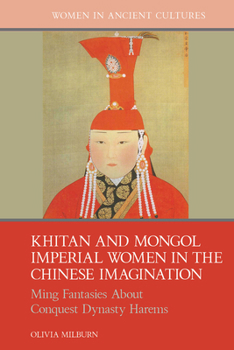Khitan and Mongol Imperial Women in the Chinese Imagination: Ming Fantasies about Conquest Dynasty Harems
Ebook available to libraries exclusively as part of the JSTOR Path to Open intiative.
Khitan and Mongol Imperial Women in the Chinese Imagination is a study and translation of two classic Chinese texts about the lives of Khitan and Mongol empresses and imperial consorts, never before translated into English. In 1075, Empress Xuanyi of the Liao dynasty was accused of adultery and forced to commit suicide. An Account of Burned Pepper (Fenjiao lu) purports to be an eyewitness account penned by a Liao government official of the conspiracy against the lovely and talented empress, who became tragically embroiled in a vicious court intrigue. Meanwhile, Yuan Dynasty Records of the Lateral Courts (Yuanshi yeting ji) claims to tell the true story of life in the imperial harem in the final years of Emperor Shun (r. 1333-1368), as he ceased participating in the government of the country, preferring instead to spend his time enjoying louche pleasures in the luxurious surroundings of his Beijing palace. Both these highly influential accounts have shaped understandings of the role of women in conquest dynasty courts for centuries, yet both can be shown to be forgeries, dating to the late Ming dynasty. This book offers a groundbreaking new assessment of the history of the Liao and Yuan dynasties, and the way in which our understanding of these regimes has been defined by early seventeenth century literary forgeries.





